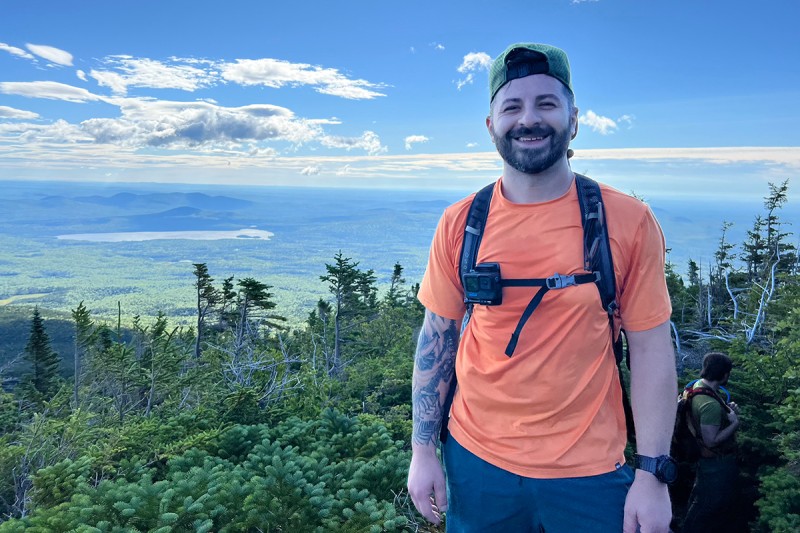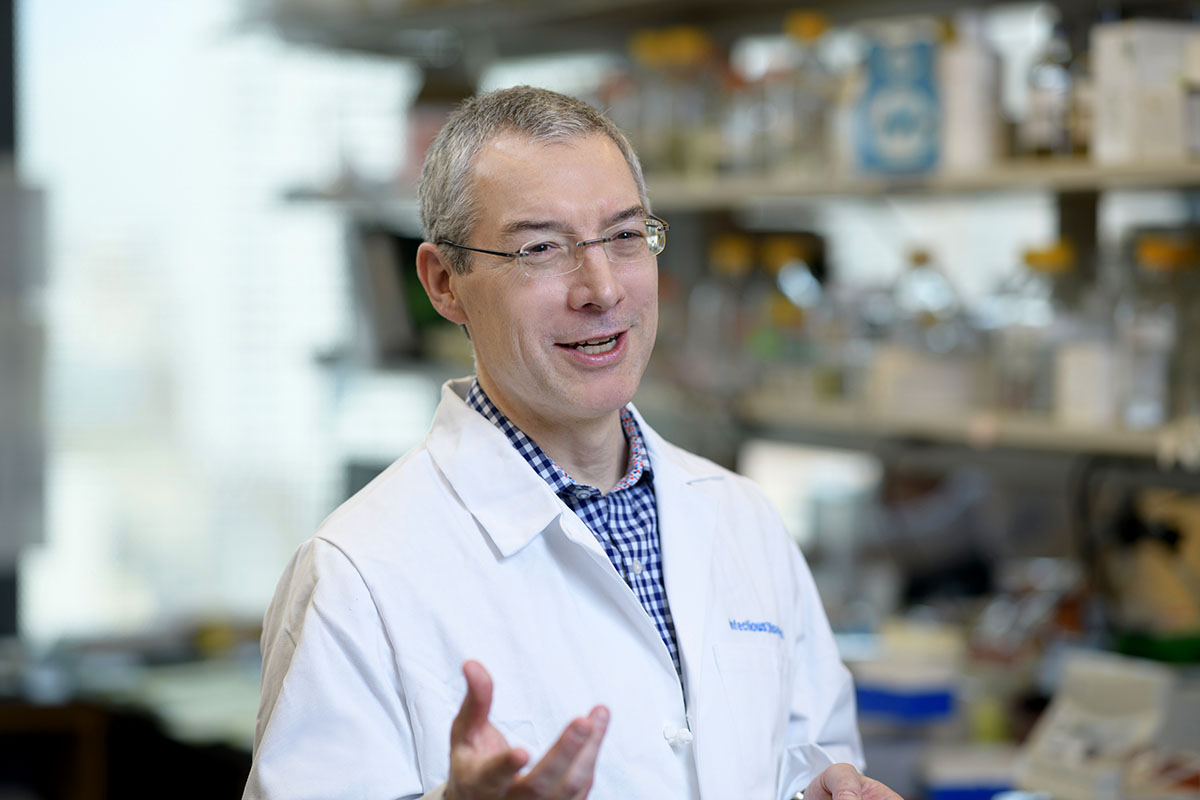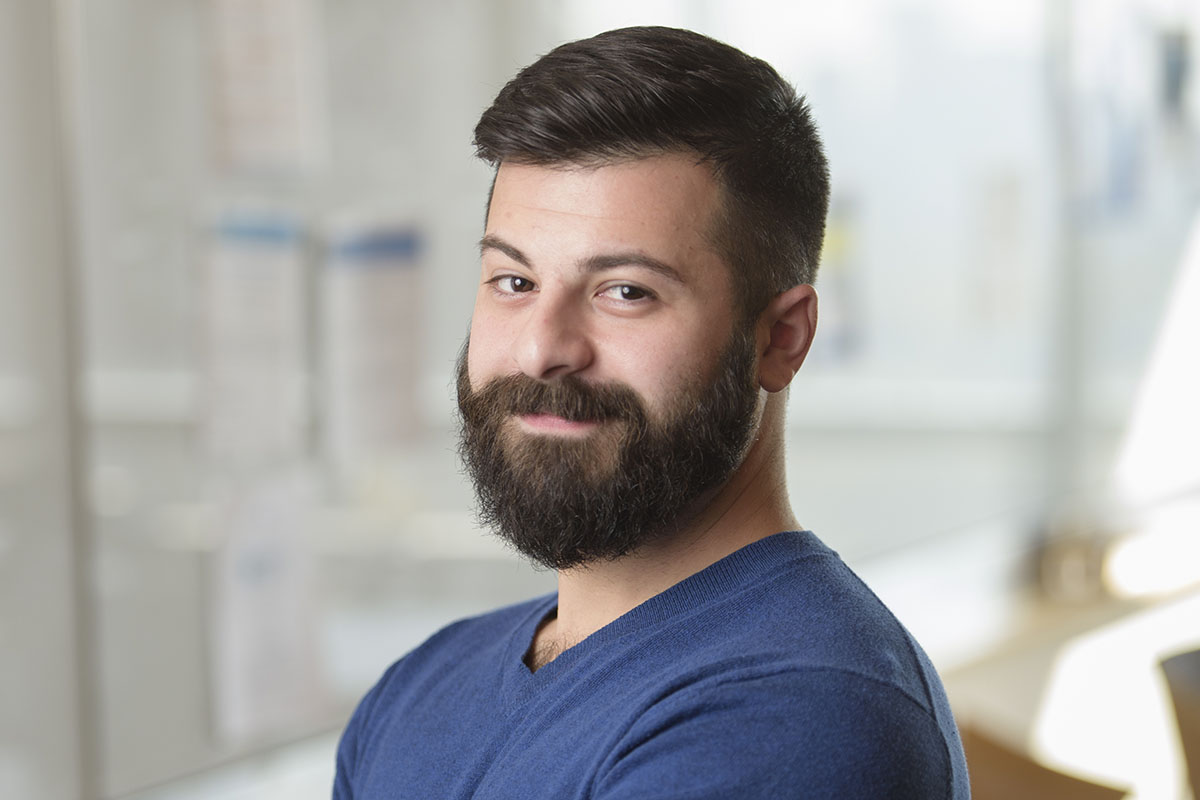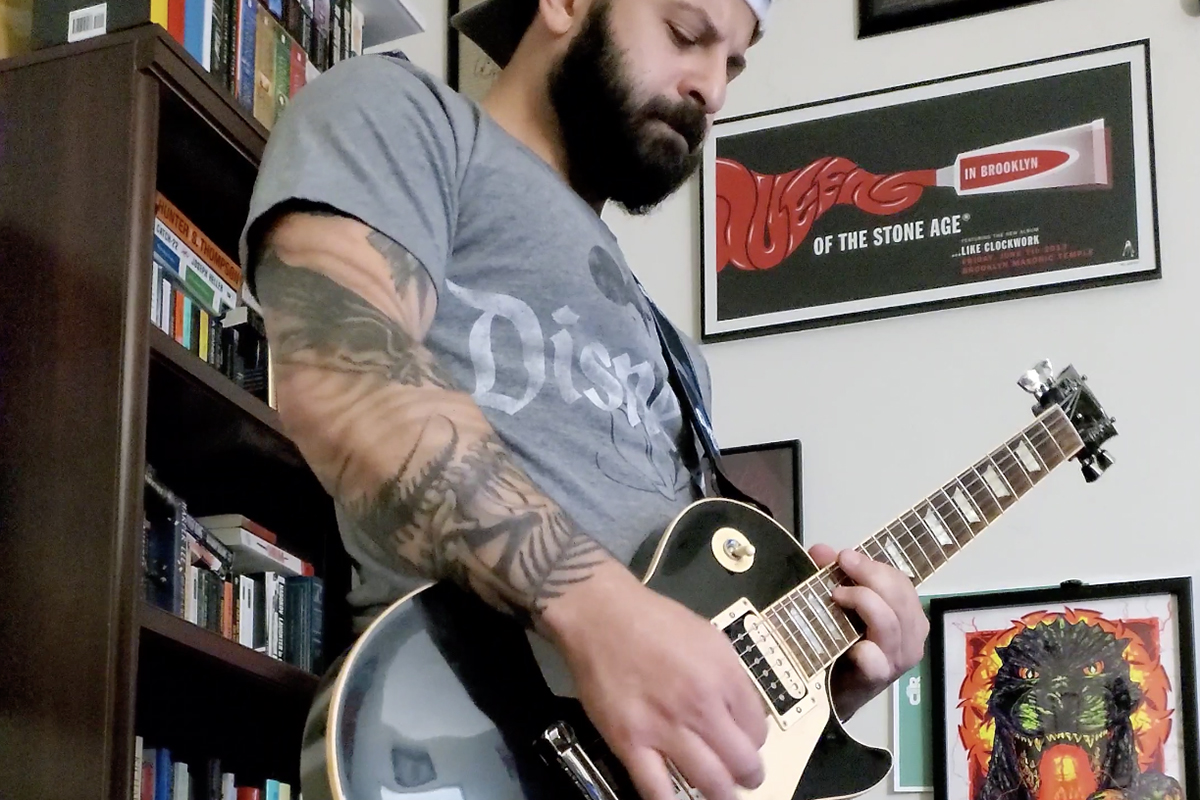
Anthony Antonelli is an unlikely scientist. A “rambunctious” child, born in Queens and raised on Long Island, he was smart and creative — but not very keen on academics. “If it wasn’t a guitar or skateboard, I wasn’t interested,” he remembers.
Finding the Art in Science
Anthony enjoyed “making something out of ideas,” and tried art school, but dropped out after a couple of years and began a period of job-wandering: He worked as a car valet and a heating, ventilating, and air-conditioning (HVAC) mechanic; he also worked in a pharmacy and an insurance company. Everything interested him in a general way, but nothing inspired him. Until, when Anthony was in his early 20s, one of his best friends died of testicular cancer.
“It really knocked me off my routine and got me asking questions,” he says. “What is cancer? Why does it do this? Why haven’t we fixed this?”

Suddenly, Anthony was driven to learn and discover. His burning questions about cancer propelled him back to school, where he become “a real student for the first time.” He studied biochemistry at Stony Brook University and then worked as a lab technician at Mount Sinai, where he “fell in love with lab science” and the prospect of making a real difference for people with cancer.
Realizing he had found his passion, he joined the Sloan Kettering Institute (SKI) lab of physician-scientist Michael Glickman, an infectious disease specialist and Alfred P. Sloan Chair, as a graduate student before earning his PhD in Weill Cornell’s Immunology Program. After completing his PhD in 2021, he returned to Dr. Glickman’s lab as a postdoc, where he continues to build on his earlier work.
Beating Bladder Cancer With a TB Vaccine
Anthony’s research involves a therapy for bladder cancer, which is the ninth most common cancer in the United States, and the fourth most common cancer in men.
“We treat bladder cancer by removing as much of the tumor as possible,” he says. “But after surgery, we can also instill a live mycobacterial treatment directly into the bladder called Bacillus Calmette–Guérin (BCG), which is a vaccine used against tuberculosis in many parts of the world. Directing BCG into the bladder reduces the recurrence of bladder cancer from about 75% to 25%–30%. It’s an unbelievably successful therapy for a subset of bladder cancer types.”
The key question for Anthony is, “How can the immunological concepts we learn from using BCG against bladder cancer be applied to other cancers?”

Anthony traces the origins of his research to two giants in the field: William Coley, a bone surgeon at the New York Cancer Hospital (which eventually became MSK) who, in 1893, began treating cancer patients with live bacteria (“Coley’s toxins”) after noticing that patients with bacterial infections sometimes saw their tumors shrink, and Lloyd J. Old, the former head of MSK’s immunology program who first discovered the cancer-fighting ability of BCG.
Today, Anthony says, the immune system represents the future of cancer therapy.
“There are many great therapies that are drug-based,” he says. “But the immune system has evolved to respond to a virtually limitless number of pathogens, automatically refining its approach over time and often conferring lifelong protection against its targets — and we’re learning to effectively harness that inherent capacity against cancers. The hope is that we’ll learn how to build a repertoire of immunotherapies that will be more robust and applicable to many more patients than a single drug ever could be.”
Being a Postdoc Means … Creative Freedom
Although his name isn’t on the lab, Anthony says that his role as a postdoc gives him a strong sense of ownership and creative freedom — something this former art student truly appreciates.
“At SKI, I have the freedom to really immerse myself in a question, to start these experiments and get to know how they work, which is an extraordinary opportunity,” he says.
He applauds the cordial, collaborative environment at SKI and credits Dr. Glickman with building a lab where postdocs like Anthony can truly be their best selves. “Working with Mike has been an amazing experience in terms of developing my confidence to conduct science independently,” he explains.

“Everybody in science is intimidated when they get to the next step — especially me, an art school dropout, who’s now working in the world’s greatest cancer center. I had this preconceived notion about how hard it would be coming to MSK, and I was so surprised at how wrong I was. You walk in here and these scientific juggernauts whose names you recognize are ready and eager to teach you what they know. Doors don’t close here — everybody is available and wants to talk about science all the time. I love that.”
Anthony often tells those coming up behind him to learn to accept failure as a part of their everyday life — and to welcome it.
“Everything that goes wrong is still progress,” he says. “You shouldn’t mistake lateral movement for no movement at all. And over time, you won’t remember the ‘failures’ — you’ll remember your perseverance.”
Remembering Why He’s Here
Anthony never loses sight of what brought him to science in the first place.
“I’m here because, right across the street from us, are several floors of people actively suffering from this disease,” he says. “My hope is that if I keep trying, I might be able to bring some light to those people, sooner rather than later.”
